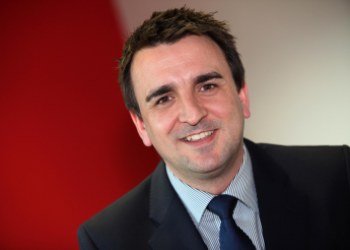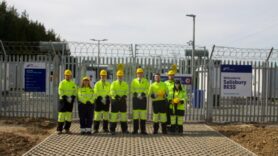If someone gave you $200k, do you know what you’d spend it on? I think I can safely say that a large number of the audience who attended our Energy Debate last week, would seriously think about using it to fund a flight to space on the new Virgin Galactic service, which launches at the end of the year. The reason being that our speaker in the afternoon, Virgin Galactic’s Commercial Director Stephen Attenborough, so inspired us with the story of this incredibly innovative business – and thrilled us with footage of the unique space ship that’s been developed to make these trips – that we all wanted to experience it first hand.
The excitement and buzz he created took many of us by surprise. I don’t think anyone appreciated just how real space tourism is – or how soon it’s going to happen. But with news that teen pop sensation Justin Bieber is the latest celebrity to sign up for a trip to space, the media is getting excited too.
Now, what does this have to do with energy, you might reasonably ask. Broadly speaking, the answer is innovation. As the theme of our Energy Debate this year was Energy Innovation: Today and Tomorrow, we asked Stephen Attenborough to share some of the unique thinking and insight that helped Virgin Galactic turn what many would have thought was an unrealistic fantasy into commercial reality.
For us in the energy industry, what can we learn? Well for starters, taking a more innovative approach could provide some solutions to the many challenges we currently face. During the Debate, we heard from customers about the corporate challenges of setting energy management strategy when there is so much uncertainty over future energy-policy-related costs. We heard from Energy Minister Michael Fallon about the political challenges of balancing the different demands of investors, consumers and climate change targets. And we heard from the CBI about the business challenges of persuading many companies of the value of implementing energy efficiency measures.
When facing so much conflict and confusion, it’s easy to feel disempowered. But, as Attenborough shared in telling the story of how Richard Branson and the team at Virgin Galactic overcame the serious barriers to making space travel a genuine option open to many, it’s all about thinking differently and collaborating with others who do the same.
If you think about space travel, not much has changed since the first manned rocket blasted off in 1961. When you look at footage of space missions in the 21st century, you still see a rocket launching vertically from a tower – and witness the same technical issues they have with safely taking off and then re-entering the Earth’s atmosphere and landing. As for reusing the rocket a second time, that’s rarely possible. So you can see why it’s hugely expensive, complex and unsafe.
The Virgin Galactic team has designed a completely new-type of rocket using carbon composite materials that are light, safe and far more fuel efficient. Rather than risk the dangers of vertical launch, their vehicle – Virgin Space Ship Enterprise – takes off passively, carried in the middle of a specially-designed twin plane, where it’s then released at 50,000 feet to start its engines to blast off through the stratosphere, accelerating to almost four times the speed of sound into space. Borrowing inspiration from a shuttlecock, it then has wings that feather out to slow down its re-entry into the earth’s atmosphere, before returning to the more traditional parallel wing position to enable the vehicle to be safely piloted and landed like an aeroplane.
In future, Virgin Galactic aims to offer a far more cost-effective way to conduct space research, launch satellites – possibly even create solar-power farms in space. But for today, any of us can be inspired to do things differently – to try out new approaches and look for original solutions to the challenges we face in our everyday work.
I also believe that looking ahead can be enormously helpful – focus on the outcomes you think your business might want to achieve in the future and how that’s going to look, then work backwards to see what solutions might support you. That’s certainly what we are spending time doing here in the I&C team at npower, and also collaborating with our customers to apply the same thinking. So watch this space – while space itself may not be where we are headed, coming up with innovative new energy management solutions certainly is…
I’ll be bringing you links to some of the Energy Debate’s highlights in next week’s blog, where I’ll be sharing the key things you need to know about Electricity Market Reform from our workshop – and how it’s likely to effect your business.





